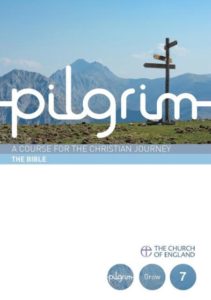
A message for all those leading groups for enquirers and new Christians
I write this message on St Luke’s day to everyone in the Diocese of Oxford and beyond who is involved in planning or leading groups for enquirers and new Christians this autumn. Thank you. This is a wonderful ministry we share together. Through this ministry, wherever it happens, lives are changed and a continual stream of new Christians come into the life of the Church helping us to grow and be more effective in serving our communities.
I write as well to everyone across the Diocese and beyond who wondering whether or not to become involved in this ministry. I want to encourage you to do so.
One of the themes at the core of Luke’s writing is, without a doubt, teaching the faith to enquirers, forming disciples in preparation for baptism. The name for this discipline in Christian theology is catechesis.
Luke begins his gospel by setting out his purpose. It is written so that we may know the truth concerning the things about which we have been instructed. The word is, literally, catechised (1.4).
Luke ends the gospel by painting a picture of Jesus as catechist on the road to Emmaus, drawing the first disciples into an understanding of Christ through walking and listening and asking questions, through teaching from the scriptures, through the breaking of bread and through sending out in mission (24).
St Luke’s day is therefore a very good day to invite you to reflect on your own habit and practice of catechesis: the way in which you welcome and teach the faith to enquirers, form new Christians and prepare them for baptism.
Many people who read this will be involved in Alpha courses, others in Christianity Explored, others in using Pilgrim. Still others might be using Start or Emmaus or material you have developed yourself. Different material works well in different places. What matters is that we offer something in every place, every year.
I have a particular interest in the development of Pilgrim. We celebrated the third birthday of the material last week. 130,000 books have been sold. It is being used in homes and churches, in prisons and pubs, with existing Christians and with enquirers. There have been 25,000 views and 6,000 downloads of the free video materials in the last year. Pilgrim is now being used in Denmark, Canada, Australia, the United Arab Emirates and in the USA (through the Church Publishing Inc version).
We have developed a Pilgrim catechism in digital and print form which will be published by Easter 2017 and Youth Pilgrim is in development.
The materials we use can be a real help. But more important is the way we use them.
A long time ago a bishop in North Africa, Augustine, wrote a short book on Instructing Beginners in the Faith. I’ve been reading it again recently. Augustine does pay careful attention to what we should teach. But he pays even more attention to the way in which we set about the task. The most distinctive and important thing, he says, is that our teaching is marked by joy.
“Our greatest concern is about how to make it possible for those who offer instruction in faith to do so with joy. For they more they succeed in this, the more successful they will be….
For if God loves a cheerful giver in matters of material wealth, how much more is this true in matters of spiritual wealth” (2,4)
Joy is also a theme in Luke’s writings: the gospel begins with singing and ends with resurrection joy.
Pay attention this St Luke’s tide to your teaching and instruction with faith. Plan in faith and look forward to a harvest. And above everything else, offer all of your teaching with joy.
+Steven Oxford
For more information on Pilgrim go to www.pilgrimcourse.org
Augustine of Hippo, Instructing beginners in the faith, New City Press, 2006
Based on a sermon to chaplains in the University of Oxford on St Luke’s day.
